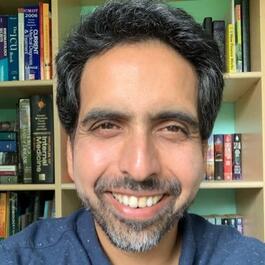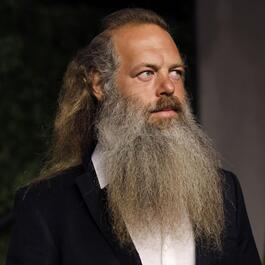
People I (Mostly) Admire
Freakonomics co-author Steve Levitt tracks down other high achievers for surprising, revealing conversations about their lives and obsessions. Join Levitt as he goes through the most interesting midlife crisis you’ve ever heard — and learn how a renegade sheriff is transforming Chicago's jail, how a biologist is finding the secrets of evolution in the Arctic tundra, and how a trivia champion memorized 160,000 flashcards. To get every show in the Freakonomics Radio Network without ads and a monthly bonus episode of Freakonomics Radio, start a free trial for SiriusXM Podcasts+ on Apple Podcasts or by visiting siriusxm.com/podcastsplus.
Show episodes
In the last episode of the podcast, Stephen Dubner turns the microphone on Steve Levitt. They talk about Levitt’s favorite — and least favorite — moments from the show’s five-year run, his quest to reform education, and his next podcasting gig. SOURCES:Stephen Dubner, host of Freakonomics Radio, co-author of Freakonom
The late Robert Solow was a giant among economists. When he was 98 years old he told Steve about cracking German codes in World War II, why it’s so hard to reduce inequality, and how his field lost its way. SOURCES:Robert Solow, professor emeritus of economics at the Massachusetts Institute of Technology. RESOURCES:
Michael Crow is the president of Arizona State University, which U.S. News & World Report has called the most innovative school in the country for 11 years running. He tells Steve about why higher education needs to change, and how A.S.U. is leading the way. Plus: Steve has an announcement about the podcast. SOURCES:M
Michael Greenstone knows it’s corny, but he wants to make the world a better place — by tracking the impact of air quality, developing pollution markets in India, and … starting a podcast, which Steve says proves he’s over the hill. SOURCES:Michael Greenstone, professor of economics at the University of Chicago. RESO
Suleika Jaouad was diagnosed with cancer at 22. She made her illness the subject of a New York Times column and a memoir, Between Two Kingdoms. She and Steve talk about what it means to live with a potentially fatal illness, how to talk to people who've gone through a tragedy, and ways to encourage medical donations.
Physicist and former pop star Brian Cox tells Steve about discovering the Higgs boson, having a number-one hit, and why particle physics research will almost certainly not create a black hole that destroys all life on earth. SOURCES:Brian Cox, physicist at the University of Manchester. RESOURCES:Black Holes: The Key





